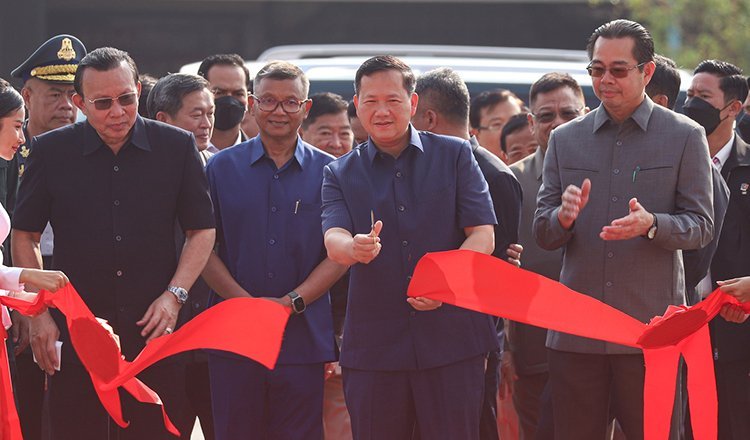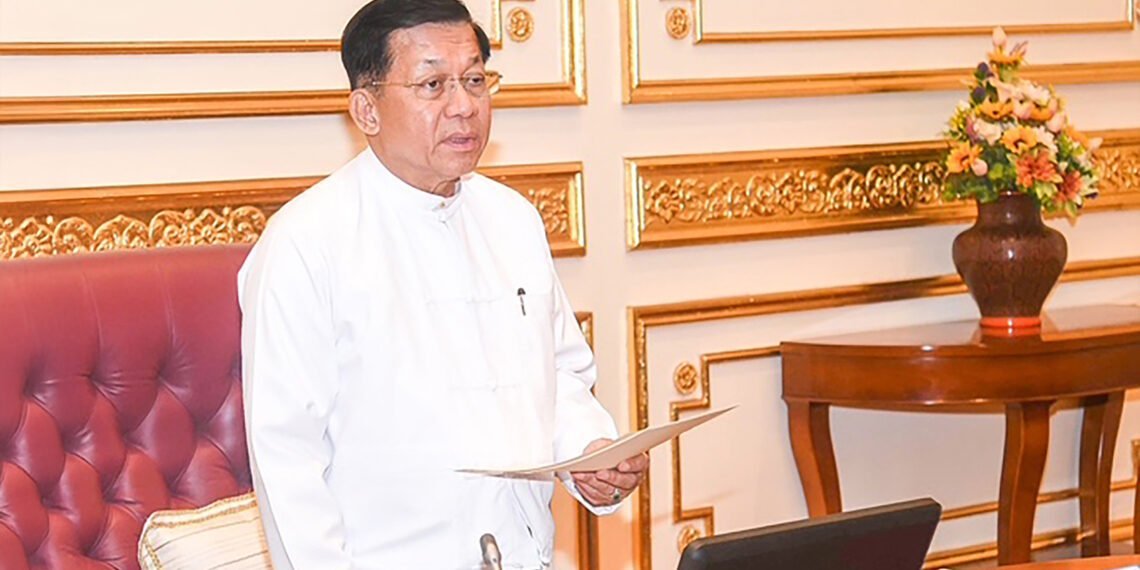-
Posts
15,785 -
Joined
-
Last visited
Content Type
Events
Forums
Downloads
Quizzes
Gallery
Blogs
Everything posted by geovalin
-
US President Donald Trump has unveiled a sweeping set of tariffs, with Cambodia facing the highest rate at 49%. The announcement, made on April 2—what Trump referred to as “America’s Liberation Day”—marks a dramatic escalation in trade tensions. Describing the new tariff as a “discounted reciprocal tariff,” Trump said it was aimed at levelling the trade imbalance. Other affected nations include Vietnam (46%), Sri Lanka (44%), Bangladesh (37%), China (34%), India (26%), South Korea (25%), Japan (24%), and the European Union (20%). The US is Cambodia’s largest export market, accounting for nearly 38% of its exports. In 2024, Cambodian exports to the US totalled $9.92 billion, an 11.4% increase, while US exports to Cambodia were valued at just $264.15 million, up 2.7%. Bilateral trade between the two nations reached $10.18 billion, rising 11.2% from the previous year. Cambodia’s exports to the US largely consist of clothing, travel goods, and footwear—sectors likely to be hardest hit by the tariff hike. The move raises concerns over economic repercussions, with analysts warning of potential disruptions to Cambodia’s trade-dependent economy. -2025-04-03
-
Myanmar Fire Dpt The death toll from Myanmar’s devastating 7.7-magnitude earthquake has climbed past 2,700, with rescue efforts hampered by widespread destruction, ongoing conflict, and infrastructure collapse. The military-led government declared a national week of mourning on Monday, three days after the powerful quake struck central Myanmar and neighbouring Thailand. Rescue teams continue to search through rubble, but hopes are fading for those still trapped, as the crucial 72-hour survival window has passed. Despite this, a 63-year-old woman was found alive in Myanmar’s capital, Naypyitaw, more than 90 hours after the disaster. Mandalay, Myanmar’s second-largest city and near the quake’s epicentre, has been hit particularly hard. Over 10,000 buildings have been destroyed or severely damaged, including monasteries where dozens of monks remain trapped. In one tragic incident, 50 children and two teachers were killed when their preschool collapsed. The disaster has deepened Myanmar’s humanitarian crisis, with power outages, crumbled roads, and damaged telecom networks delaying aid. While rescue teams from China, Russia, India, and Thailand arrived quickly, the U.S. response has faced delays. In Thailand, the earthquake caused a high-rise under construction to collapse in Bangkok, killing at least 20 people. Authorities are now investigating potential safety violations at the site. With thousands still homeless and aftershocks a continued risk, the full scale of Myanmar’s worst earthquake in decades is yet to be realised. Aid agencies warn that clean water, shelter, and medical care are urgently needed, while international rescue efforts remain critical in the days ahead. -2025-04-02
-
Myanmar’s military government faces growing condemnation for allegedly obstructing aid to earthquake survivors while continuing airstrikes in conflict-hit regions. International agencies have called for “unfettered access” to humanitarian relief as the crisis deepens. The 7.7-magnitude earthquake that struck central Myanmar on Friday has left over 2,700 dead and devastated infrastructure, leaving thousands in desperate need of food, water, and medical aid. However, doctors and rescue workers claim the junta is restricting the flow of emergency supplies, particularly in regions outside its control. Dr Nang Win, a medic coordinating relief efforts, reported that aid deliveries in Mandalay and Sagaing had been confiscated or heavily reduced. “Most of the aid has not reached the people who need it,” she said, adding that supplies were likely being diverted to black markets. Since seizing power in 2021, Myanmar’s military has struggled to maintain control amid ongoing civil conflict. It now controls less than 30% of the country, making aid distribution a politically charged issue. Reports suggest that military checkpoints are preventing aid from reaching opposition-held areas, forcing local communities to find alternative routes for relief deliveries. Meanwhile, the junta has come under fire for continuing airstrikes even as the humanitarian crisis unfolds. The Karen National Union, an ethnic armed group, accused the military of bombing civilian areas despite widespread suffering from the disaster. In response to the crisis, the Three Brotherhood Alliance, a major rebel coalition, declared a one-month ceasefire to facilitate humanitarian efforts, while Myanmar’s exiled opposition National Unity Government (NUG) has pledged a two-week truce. However, the military has yet to announce any similar measures. International organisations, including the United Nations, warn that clean water, food, and sanitation are urgently needed in the worst-affected areas. UN officials have urged Myanmar’s military to allow disaster response teams into the country, stressing that a total ceasefire is necessary to ensure lifesaving aid reaches those in need. -025-04-02
-
- 1
-

-
Cambodia Airways has successfully launched its new non-stop service between Phnom Penh and Hong Kong, marking a significant expansion of its international flight network. The inaugural flight ceremony took place on 1st April 2025 at Hong Kong International Airport, attended by key officials from Hong Kong’s government and aviation industry. This new route is Cambodia Airways' fourth direct connection to China’s Guangdong-Hong Kong-Macau Greater Bay Area, following its existing services to Macau, Shenzhen, and Guangzhou. With the addition of Hong Kong, the airline now fully covers the four major cities in this economically vital region. Hong Kong, a global financial hub and key gateway to China, plays an essential role in trade and travel within the region. Meanwhile, Cambodia continues to position itself as a growing economic player in ASEAN and a key participant in China’s Belt and Road Initiative. The new route is expected to strengthen business ties, boost tourism, and promote economic collaboration between the two destinations. As Cambodia’s only full-service airline, Cambodia Airways offers premium business class services with distinct Khmer hospitality. The new Phnom Penh–Hong Kong route aims to provide seamless travel options for business and leisure passengers alike. To celebrate the inaugural flight, passengers arriving in Phnom Penh were warmly welcomed with traditional Khmer jasmine garlands, while departing travellers received souvenir gifts. With this expansion, Cambodia Airways continues to enhance connectivity in the region, reinforcing its role in linking Cambodia to key global markets. -2025-04-02
-
Cambodian police Cambodia has witnessed an increase in drug-related arrests in early 2025, even as the total volume of narcotics seized has significantly declined, according to a report from the Anti-Drug Department (ADP) released on Tuesday. Authorities detained 6,048 drug-related suspects between January and March, marking a 10% increase from 5,489 arrests during the same period in 2024. Among them, 192 were foreign nationals from eight different countries. Despite the rise in arrests, the total amount of drugs confiscated dropped sharply. Officials seized 1.4 tons of illicit substances in the first quarter of 2025—a 61% decrease compared to the 3.65 tons recovered in the same period last year. The majority of the confiscated narcotics included ketamine, ecstasy, heroin, crystal methamphetamine, methamphetamine pills, cocaine, and cathinone. Cambodia enforces strict drug laws but does not impose the death penalty for drug trafficking. However, individuals convicted of trafficking more than 80 grams of illicit substances face the possibility of life imprisonment. Authorities have not yet provided a clear explanation for the decline in drug seizures, but the trend raises questions about changes in trafficking routes, enforcement strategies, or smuggling methods. -2025-03-02
-
The Cambodian Ministry of Labour has postponed the issuance of work permits and work books for foreigners until 30 April 2025 due to a backlog of extension applications for the upcoming year. In an official notice, the ministry explained that the delay is intended to allow for the timely processing of renewal applications. Foreign workers and their employers are required to submit applications via the online platform www.fwcms.mlvt.gov.kh before the deadline. The ministry has warned that failure to extend work permits and employment certificates on time will result in fines, in line with Chapter 16 of the Labour Law and Inter-Ministerial Announcement No. 498, issued on 31 July 2023. The penalties will apply to both individuals and businesses that fail to comply. Officials have urged all business owners, company directors, and foreign employees to adhere strictly to the new timeline to avoid legal repercussions. -2025-04-01
-
Chou Bun Heng, NCCT Efforts to combat child sexual exploitation in Cambodia are falling short, with nearly half of all trafficking victims being minors, according to a troubling new report by the National Committee for Counter Trafficking (NCCT). Despite government initiatives aimed at raising awareness and preventing exploitation, the number of underage victims remains alarmingly high. NCCT Permanent Vice-Chairwoman Chou Bun Eng acknowledged that while extensive educational campaigns have reached millions, they have not been as effective as hoped. “Our efforts are not being well received by targeted groups yet,” Bun Eng said. “People need to believe in the risks before they can follow precautions, but many, especially the younger generation, still believe they are invulnerable.” A combination of factors is exacerbating the crisis. The rapid expansion of internet access has led to a rise in online exploitation, with traffickers increasingly using social media to target vulnerable individuals. Economic hardship also plays a major role, pushing young people to seek employment opportunities that leave them exposed to traffickers. A study by NGOs found that 43% of children under 18 spend significant time online without sufficient digital literacy, leaving them unaware of the dangers posed by online predators. Country Director of Plan International Cambodia, Yi Kimthan, warned that young women and girls are particularly at risk due to societal norms and gender-based discrimination. Despite the challenges, the Cambodian government has stepped up its crackdown on human trafficking. In 2024, authorities investigated 197 cases—an increase of 20% from the previous year—identifying 523 victims and arresting 273 suspects, including 30 foreigners. However, as criminal syndicates evolve, they continue to find new ways to exploit vulnerable citizens. Deputy Prime Minister and Minister of Interior Sar Sokha noted that Cambodia is also battling other transnational crimes such as drug trafficking and cybercrime, further complicating efforts to combat child exploitation. One of the most significant government responses has been the creation of the Commission for Combatting Online Scams, a task force led by Prime Minister Hun Manet. Earlier this month, the commission’s first major crackdown resulted in the arrest of 258 foreign nationals involved in human trafficking in Mondulkiri province. Experts stress that more needs to be done. Strengthening legislation, improving public awareness, and collaborating with the private sector—especially internet service providers—are seen as crucial steps to protecting children. Schools also play a key role in equipping young people with the knowledge and tools to stay safe online. “Being trafficked or sexually exploited leads to lifelong consequences, from physical health complications to severe trauma and mental health issues,” Kimthan said. “We must break this cycle.” While Cambodia has made strides in tackling human trafficking, the battle is far from over. Without a major shift in public awareness and tougher enforcement, the country’s most vulnerable will remain at risk. -2025-04-01
-
Xinhua As Myanmar reels from a devastating 7.7-magnitude earthquake that has killed over 2,000 people, China has stepped in with rapid humanitarian aid, while the United States has been slower to respond amid cuts to its foreign aid agency. Beijing deployed more than 400 personnel to the disaster zone within 18 hours of the quake, providing $14 million in relief supplies and sending multiple rescue teams to Myanmar and neighbouring Thailand. Meanwhile, Washington announced a $2 million aid package on Monday, with a small USAID response team preparing to assess the damage—but as of Monday morning, they had yet to enter the country. The delay highlights the impact of President Donald Trump’s efforts to dismantle USAID, which has seen mass layoffs, funding cuts to 80% of its programmes, and the closure of its headquarters. On Friday, the State Department confirmed it was officially taking over many of USAID’s functions, a move that critics argue has slowed the U.S. disaster response. State Department spokesperson Tammy Bruce defended the U.S. approach, stating, “I would reject the notion this is obviously a result of the USAID cuts… We’re certainly in the region.” Officials also said discussions were ongoing about potentially deploying a Disaster Assistance Response Team (DART), though it would likely be smaller than in past missions. China has wasted no time in using its response to bolster its image as a reliable regional partner. Chinese Foreign Ministry spokesperson Mao Ning posted images of rescue workers on X, describing Beijing as “a friend in need.” The swift response has won Beijing international praise, with multiple teams working on the ground, particularly in Myanmar and Thailand. At the site of a collapsed 34-storey building in Bangkok, U.S. Indo-Pacific Command personnel have been assisting Thai and Israeli teams, using drones to locate survivors. Local volunteers, such as translator Choktong Issarangkool, acknowledged the American contributions but noted that China’s response had been significantly faster. The Myanmar disaster has placed Washington’s global leadership in crisis relief under scrutiny. While the U.S. has historically been among the first to respond to humanitarian emergencies, recent government shake-ups appear to have hindered its ability to react quickly. With thousands still missing and aid efforts hampered by Myanmar’s ongoing civil war, the need for swift and effective international assistance has never been greater. Whether Washington can reassert itself in global disaster relief—or whether Beijing will continue to fill the void—remains an open question. -2025-04-01
-
Myanmar Rescue Team Mandalay Rescue operations are underway in Myanmar after a devastating 7.7-magnitude earthquake struck the country on Friday, leaving more than 2,065 dead and thousands injured. However, efforts are being hampered by ongoing conflict between the ruling military junta and rebel forces, raising fears that vital aid may not reach those in desperate need. In Mandalay, one of the hardest-hit cities near the epicentre, rescue teams freed at least four people, including a pregnant woman and a child, from collapsed buildings. Dramatic footage from China’s state broadcaster CCTV showed workers carrying a survivor through rubble-strewn streets, while drone images revealed entire multi-storey buildings pancaked into concrete slabs. The disaster comes as Myanmar remains in turmoil following the military coup in 2021. Humanitarian agencies, including the International Committee of the Red Cross (ICRC), report major difficulties accessing affected regions due to ongoing violence. "There are a lot of security issues to access some areas across the front lines in particular," said Arnaud de Baecque of the ICRC. Shockingly, rebel groups claim the military has continued airstrikes on villages in the quake's aftermath, further endangering civilians. Singapore’s foreign minister has called for an immediate ceasefire to allow relief efforts to proceed unhindered. Meanwhile, conflicting reports on the death toll have emerged. Myanmar’s state media put the official count at 2,065, while the opposition National Unity Government (NUG) claimed at least 2,418 lives had been lost. The Wall Street Journal cited junta sources stating 2,028 fatalities. With media restrictions in place, independent verification remains difficult. Junta leader General Min Aung Hlaing has warned that the death toll could climb further. International aid has begun arriving, with China, India, Thailand, Malaysia, Singapore, and Russia sending relief supplies and personnel. The United Nations is scaling up efforts, while the US has pledged $2 million in humanitarian aid. However, opposition groups warn that the junta could divert or block assistance, urging international donors to send aid directly to earthquake victims. The disaster has exacerbated Myanmar’s existing humanitarian crisis, with millions already displaced by civil war. Damaged infrastructure, including bridges, roads, and hospitals, is slowing relief efforts, leaving thousands without shelter, food, or medical care. “The earthquake has laid bare the deeper vulnerabilities facing Myanmar’s people and underscored the need for sustained international attention to the broader crisis,” said UN Special Envoy Julie Bishop. As survivors sleep outdoors, unsure when help will arrive, Myanmar’s twin crises of war and natural disaster continue to unfold, with no clear resolution in sight. -2025-04-01
-
- 1
-

-
PHNOM PENH, Cambodia – Crown Prince Guillaume of Luxembourg has arrived in Cambodia for a four-day visit aimed at strengthening diplomatic and economic ties between the two nations. Accompanied by Deputy Prime Minister Xavier Bettel, the Crown Prince will hold talks with Cambodian Deputy Prime Minister Prak Sokhonn and other key officials. His visit underscores Luxembourg’s growing engagement with Cambodia in areas such as trade, education, and development cooperation. The delegation was welcomed in Siem Reap by Agriculture Minister Dith Tina before heading to Phnom Penh for high-level meetings. Discussions are expected to explore new avenues of collaboration, building on previous engagements between the two countries. In recent months, Luxembourg has expressed interest in deepening cooperation with Cambodia, particularly in investment, health, and education. The visit follows prior talks between Prime Minister Hun Manet and Luxembourg officials on the sidelines of last year’s ASEAN Summits. As both nations look to expand bilateral ties, this visit marks another step in fostering closer partnerships and exploring new opportunities for cooperation. -2025-03-31
-
CMAC PHNOM PENH, Cambodia – Japan has pledged over $10 million in grants to support Cambodia’s ongoing efforts to clear landmines and explosive remnants of war, a legacy of decades of conflict. The funding, formalised in an agreement signed on Thursday between Cambodian Deputy Prime Minister Prak Sokhonn and Japanese Ambassador Ueno Atsushi, will be directed to the Cambodian Mine Action Center (CMAC). Of the total amount, $8.3 million will go towards strengthening CMAC’s South-South Cooperation training programme, which helps share demining expertise with other affected nations. The remaining $2.1 million will fund the construction of a training complex and outreach facility. Cambodia remains one of the world’s most landmine-affected countries, with an estimated 4 to 6 million unexploded munitions left behind from conflicts that ended in 1998. Since 1979, landmines and explosive remnants of war have killed nearly 20,000 people and injured more than 45,000. Japan has long been a key supporter of Cambodia’s demining efforts, and this latest contribution is expected to enhance the country’s capacity to train specialists and accelerate mine clearance operations, making communities safer. -2025-03-31
-
- 1
-

-
Photo Myanmar Rescue Mandalay As Myanmar reels from the devastating 7.7-magnitude earthquake that struck on Friday, concerns are mounting over whether international aid will reach those who need it most—or if it will be controlled and misused by the ruling military junta. Junta leader Min Aung Hlaing, accused of war crimes and crimes against humanity, made a rare plea for foreign assistance after the disaster left more than 1,000 dead. Yet, even as international relief efforts began, the military continued its brutal campaign against resistance strongholds, bombing civilians in Sagaing and Shan State. The regime has a history of mismanaging crises. After Cyclone Nargis in 2008, which killed over 100,000 people, the military obstructed aid and prioritised its grip on power. A similar pattern was seen during the COVID-19 pandemic, when the junta’s failures left countless dead. Now, with no proper disaster response plan in place, Myanmar’s people are left to fend for themselves once again. While countries including the US, China, Russia, India, and Thailand have pledged aid, concerns persist over whether it will be fairly distributed. The military controls nearly all communication and transport networks, raising fears that assistance will be diverted to junta strongholds while opposition areas, like Sagaing, are left to suffer. Myanmar’s local civil society groups and NGOs are best placed to help earthquake victims, but they need direct support. The international community must ensure aid reaches the people—not the military rulers responsible for their suffering. -2025-03-31
-
Aungban Philanthropic Group MANDALAY, Myanmar – The devastating aftermath of Myanmar’s 7.7 magnitude earthquake has left a grim scene in Mandalay, the country’s second-largest city, as rescuers scramble to find survivors buried beneath collapsed buildings. The death toll has surpassed 1,600, with many more feared trapped under the rubble. The quake struck on Friday, reducing homes, businesses, and infrastructure to ruins. The city’s airport was badly damaged, and roads have buckled, severely hampering relief efforts. With communication networks down in many areas, the full extent of the disaster remains unclear. Survivors, armed with nothing more than shovels and their bare hands, have been digging through the debris in extreme heat, desperately searching for family and friends. The situation is dire, with hospitals overwhelmed, supplies running low, and clean water scarce. Sunday’s 5.1 magnitude aftershock sent fresh waves of panic through the streets, but the rescue efforts pressed on. Many Mandalay residents, left homeless or fearful of further building collapses, spent the night outdoors. Foreign aid has begun to trickle in, with teams from India, China, Russia, and neighbouring Thailand joining rescue operations. However, the ongoing civil war in Myanmar complicates efforts, with military-controlled regions restricting access to humanitarian aid. As time passes, the likelihood of finding survivors diminishes. Aid workers warn that without immediate intervention, the crisis could deepen, with food shortages and disease outbreaks looming. The disaster has also impacted Thailand, where at least 18 people have died, including 11 in a high-rise collapse in Bangkok. Calls for a ceasefire in Myanmar’s conflict zones are growing as the international community urges the military to prioritise relief efforts. However, with tensions still high, it remains uncertain whether humanitarian aid will reach those who need it most in time. -2025-03-31
- 1 reply
-
- 1
-

-
A devastating 7.7-magnitude earthquake has struck central Myanmar, leaving at least 150 dead and many more feared trapped beneath collapsed buildings. The quake, which also shook neighbouring Thailand, has forced Myanmar’s ruling military junta to issue a rare plea for international aid. A Desperate Appeal Myanmar’s military chief, Min Aung Hlaing, visited a hospital in Naypyidaw, where survivors are being treated. Junta spokesperson Zaw Min Tun urged the global community to provide immediate humanitarian assistance, a striking move from a government that typically resists outside intervention. A state of emergency has been declared across six regions, including Mandalay, Sagaing, and Magway. Trump’s Response Amid Aid Cuts In Washington, President Donald Trump acknowledged the disaster, stating, “We’re going to be helping. We’ve already alerted the people. Yeah, it’s terrible what happened.” However, his administration’s drastic cuts to USAID and the State Department’s humanitarian programmes have left the US response capabilities in question. Sarah Charles, a former senior USAID official, warned that the agency is now “in shambles,” lacking the staff and resources for an effective disaster response. The Trump administration recently announced the closure of USAID, raising doubts over how the US can deliver the promised aid. A Region in Crisis The earthquake's impact extends beyond Myanmar, with tremors felt as far as India, China, and Cambodia. In Bangkok, a 34-storey building collapsed, killing at least 10 people. The full scale of the disaster remains unclear, but with Myanmar’s infrastructure already weakened by years of conflict and economic turmoil, the need for international aid is urgent. The coming days will test not only Myanmar’s ability to manage the crisis but also the effectiveness of global humanitarian efforts—particularly from an America now lacking its once-formidable aid network. -2025-03-29
-
India has released 27 Myanmar women and children who were unlawfully detained for up to two years after serving their sentences, following mounting pressure from rights groups. The group—20 women and seven children—had been held in Sajiwa Prison in Imphal, Manipur State, since their 2022 arrest for entering India illegally. Although they had completed their sentences, authorities continued to detain them until their release on 21 March 2025. Their freedom came after India for Myanmar, an advocacy group, and 160 Myanmar organisations applied pressure following the 10 March death of another Myanmar prisoner in the same jail. Salai Dokhar, the group’s founder, criticised India’s delayed response, stating the prisoners had been unjustly held long past their sentences. It remains unclear how the freed detainees will be repatriated. In previous cases, India handed over released Myanmar nationals to the ruling junta in Myanmar’s Sagaing Region before they were allowed to return home on bail. -2025-03-29
-
PHOTO: CAMBODIAN IMMIGRATION DEPARTMENT Cambodia witnessed a sharp rise in human trafficking cases in 2024, with authorities cracking down on nearly 200 incidents and more than doubling the deportation of foreign offenders, according to a newly released government report. The National Committee for Countering Human Trafficking reported on 27 March that 197 cases were investigated last year—an increase of 33 from 2023—leading to 273 arrests. Additionally, authorities handled 922 cases resulting in the deportation of 5,852 individuals, a stark rise from 2,159 in the previous year. Chinese nationals accounted for the largest share of deportees, with 2,695 sent back—more than double the 1,011 repatriated in 2023. Vietnamese and Indonesian nationals followed, with 1,198 and 861 deportations, respectively. Interior Minister Sar Sokha warned that Cambodia remains vulnerable to cross-border crimes, including human trafficking and tech-based scams. He noted that criminal networks are using the country as a base for illicit activities, targeting both locals and foreign nationals. Authorities say they are working closely with embassies and international partners to dismantle trafficking rings and assist victims, while perpetrators continue to face prosecution. -2025-03-29
-
Photo: Royal Embassy of Cambodia, Washington, DC The United States has returned two ancient Khmer artefacts to Cambodia, marking another step in the fight against cultural artefact trafficking. The Manhattan District Attorney’s office handed over the relics to Cambodian officials on 26 March, as part of an ongoing investigation into smuggling networks linked to disgraced art dealer Subhash Kapoor. The artefacts, dating from the 11th and 12th centuries, were illicitly removed from Cambodia and eventually surfaced in the US. One, a sculpture known as "Head of a Ruler," is a relic from the Angkor period, bearing signs of violent removal. The other, a "Grey Sandstone Torso" from the Baphuon period, was stolen from Cambodia’s Wat Po Veal Museum during the country’s civil war and later sold at auction in New York in 2024 before being seized by authorities. Manhattan DA Alvin Bragg highlighted the significance of the return, noting that over 30 stolen Cambodian artefacts have been repatriated in recent years. Since 2011, US authorities have recovered more than 2,500 objects linked to Kapoor’s smuggling ring, many of which have been returned to their rightful countries, including India, Pakistan, and Nepal. Kapoor, who was sentenced to ten years in prison in India in 2022, still faces extradition to the US, where he has been charged with 86 criminal counts. Five members of his network have already been convicted. -2025-03-29
-
A devastating 7.7-magnitude earthquake struck Myanmar on Friday, killing at least 144 people and injuring over 730. The quake, which hit in the early afternoon, caused widespread destruction, with tremors felt as far as Bangkok, Thailand, where eight people died, and a high-rise building collapsed. Myanmar Declares State of Emergency The earthquake's epicentre was near Sagaing, close to Mandalay, at a shallow depth of 10km, according to the US Geological Survey (USGS). A powerful aftershock of 6.4 magnitude followed just 12 minutes later, worsening the devastation. Myanmar’s military-led government declared a state of emergency across six regions, with authorities warning that the death toll is expected to rise. Major General Zaw Min Tun, a military government spokesperson, urged blood donors to assist hospitals in hard-hit areas, including Mandalay, Sagaing, and Naypyitaw. The Red Cross reported that damaged power lines were hampering relief efforts, leaving some areas inaccessible. The earthquake caused a 90-year-old bridge in the Sagaing region to collapse and damaged key highways linking Mandalay to Yangon. In Naypyitaw, several religious shrines were destroyed. International Aid Sought Amidst Ongoing Civil Unrest Myanmar’s ruling military junta made a rare request for international humanitarian aid. However, ongoing civil conflict following the 2021 coup complicates relief efforts. Aid groups are scrambling to assess the situation and navigate Myanmar’s restricted access to external assistance. As the full scale of the disaster unfolds, rescue teams continue to search for survivors amid the destruction, with fears that the final death toll will rise significantly in the coming days. -2025-03-28
-
As Myanmar’s conflict deepens, ASEAN’s response is facing a moment of reckoning. With its chairmanship in 2025, Malaysia has a rare opportunity to push for a new strategy that goes beyond ASEAN’s struggling Five-Point Consensus (5PC). The military junta, in power since the 2021 coup, is losing control over vast swathes of the country. Despite this, Senior General Min Aung Hlaing insists elections will be held in late 2024 or early 2025. However, with resistance groups controlling an estimated 42% of Myanmar’s territory, ASEAN remains sceptical. Malaysia’s approach so far has been proactive. Its special envoy, Othman Hashim, has engaged not only with the junta but also with Myanmar’s opposition groups, including the National Unity Government (NUG) and ethnic armed organisations. This shift suggests a potential recalibration of ASEAN’s engagement strategy. Beyond diplomacy, Malaysia’s leadership will be crucial in addressing the humanitarian crisis. With over 20 million people in need of aid, ASEAN’s current relief efforts have proven inadequate. Thailand has already pioneered cross-border aid routes—Malaysia could expand such initiatives and coordinate ASEAN’s approach with key external partners like China, India, and Japan. As Myanmar’s crisis continues, ASEAN must look beyond just ending violence. It needs a long-term strategy that includes supporting Myanmar’s displaced communities, investing in capacity-building, and helping to shape a post-conflict governance structure. Malaysia’s 2025 chairmanship could set the stage for ASEAN’s most decisive shift on Myanmar yet. -2025-03-28
-
A Myanmar rebel group controlling a major rare earth zone has authorised the export of existing stockpiles to China, easing supply concerns that had driven up prices. The Kachin Independence Army (KIA), which seized control of mining areas in Kachin state last October, informed miners that shipments could resume from 28 March, sources told Reuters. The group will impose a tax of 35,000 yuan (£3,900) per tonne on exports. China, the world’s largest importer of rare earths, has faced supply shortages since Myanmar’s exports plummeted, with terbium oxide prices surging nearly 22% in six months. Prices have since dipped 1% as expectations of increased supply grow. The KIA has not publicly commented, but its decision marks a shift in Myanmar’s rare earth trade, with potential ripple effects on global markets. -2025-03-28
-
Fauna&Flora A groundbreaking genetic study has revealed that Cambodia’s northern plains host a larger and more diverse population of endangered Asian elephants than previously thought, offering new hope for their conservation. Conducted by Fauna & Flora alongside Cambodian and Scottish researchers, the study analysed elephant dung to estimate a population of 51 elephants in the Prey Lang, Preah Roka, and Chhaeb wildlife sanctuaries—far more than earlier anecdotal estimates of 20-30 individuals. Crucially, genetic testing showed these elephants descended from two distinct lineages, boosting their chances of long-term survival. Despite this positive finding, the study warns that a population of at least 1,000 is needed to prevent inbreeding and ensure survival beyond the next century. Cambodia’s total wild elephant population is estimated at just 400-600. Fragmentation remains a major threat, with elephants moving between Preah Roka and Chhaeb but not to Prey Lang, underscoring the need to expand conservation efforts. Experts say this research provides vital insights for future protection strategies, with plans to apply similar methods across Cambodia and beyond to better track and safeguard elephant populations. -2025-03-28
-
Khmer Times Cambodia has reported 647 forest fires in just one week, with the provinces of Ratanakiri and Stung Treng hardest hit, according to the Ministry of Environment (MoE). At the same time, Phnom Penh recorded its worst air pollution on record, ranking among the most polluted cities globally. Between 20 and 26 March, Ratanakiri and Stung Treng saw 101 fires, while Mondulkiri and Kampong Thom recorded 77 and 56 fires, respectively. Ministry spokesman Khvay Atitya attributed the fires to climate change and human activities, including burning trash and agricultural waste. Phnom Penh’s air quality plummeted, ranking 15th most polluted city worldwide and 6th worst in Southeast Asia, according to IQAir. However, the MoE insists Cambodia’s air quality remains within safe limits, following World Health Organization guidelines. Authorities have pledged to step up conservation efforts, patrols, and public awareness campaigns to curb forest fires and improve air quality. The public is urged to cooperate by avoiding open burning and promoting environmental awareness. -2025-03-28
-
geovalin Cambodia has ranked lowest among ASEAN nations in the 2025 World Population Review’s education index, placing 120th globally out of 203 countries. Singapore leads ASEAN in education, followed by Brunei, Vietnam, and Indonesia, while Cambodia lags behind regional peers. South Korea tops the global list, followed by Denmark and the Netherlands. Education specialist Dr Quach Mengly acknowledged Cambodia’s progress over the years but stressed that the country is falling behind in modernisation and technology. He highlighted a lack of STEM education and AI integration as key challenges, urging the government to invest in these areas. Dr Mengly also warned against overemphasising English at the expense of Khmer proficiency, arguing that strong native language skills are essential for academic success. The Ministry of Education has not yet commented on the report, citing the need to review its methodology. Meanwhile, Prime Minister Hun Manet has called for reforms to modernise Cambodia’s education system and ensure it keeps pace with global developments. -2025-03-27
-
AKP Cambodian Prime Minister Hun Manet has announced that Preah Sihanouk province will become the country’s main logistics hub, with a $1 billion investment in its deep-water port. Speaking at the inauguration of a new school building in the province, Hun Manet urged local residents to prepare for economic opportunities that the transformation will bring. He emphasised the need for a skilled workforce, encouraging young people to focus on education to support the region’s growth. Preah Sihanouk currently hosts nearly 4,000 factories and businesses, employing over 127,000 workers. The province also has 12 special economic zones, five of which are operational. With this investment, Cambodia aims to strengthen its role in regional trade and logistics, positioning Preah Sihanouk as a key economic driver for the nation’s future. -2025-03-27
-
GNLM Myanmar’s ruling junta has announced plans to hold a national election in four phases between December 2025 and January 2026, marking the first time it has provided a detailed schedule for the long-promised vote. Since seizing power in 2021, the military has repeatedly delayed elections, citing ongoing conflict. With large parts of the country controlled by resistance groups, the feasibility of a nationwide vote remains in question. Despite international scepticism, the junta has gained backing from Russia, Belarus, China, and India. However, human rights groups and the ousted National League for Democracy (NLD) reject the election’s legitimacy, arguing that widespread military control and political restrictions make a fair vote impossible. Former leader Aung San Suu Kyi remains imprisoned, and the military previously dissolved the NLD, which won Myanmar’s last democratic election in 2020. Rebel groups and the shadow National Unity Government insist negotiations can only happen if the military steps away from politics—an idea the junta dismisses as "impossible." With resistance forces vowing continued pressure, Myanmar’s future remains uncertain as the regime pushes ahead with its controversial election plans. -2025-03-27



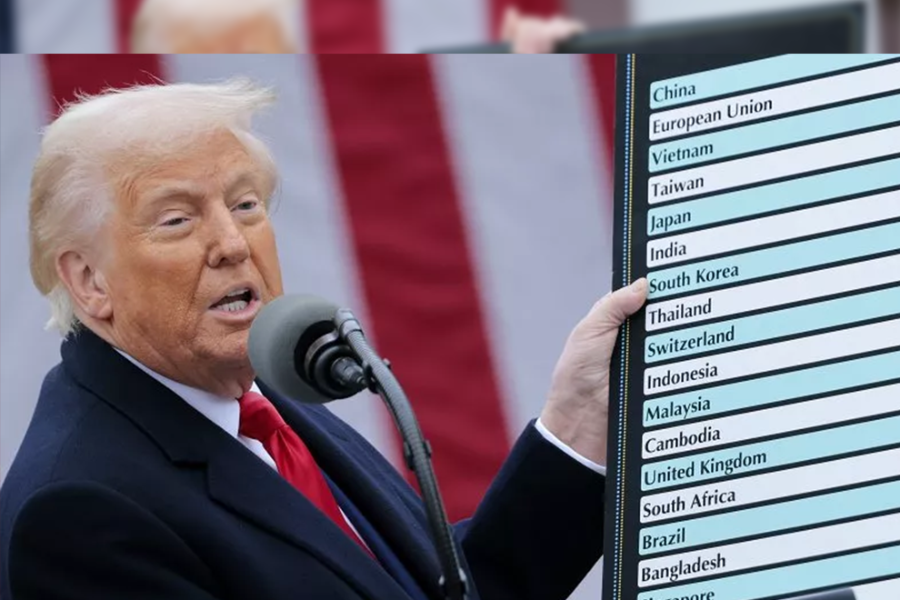

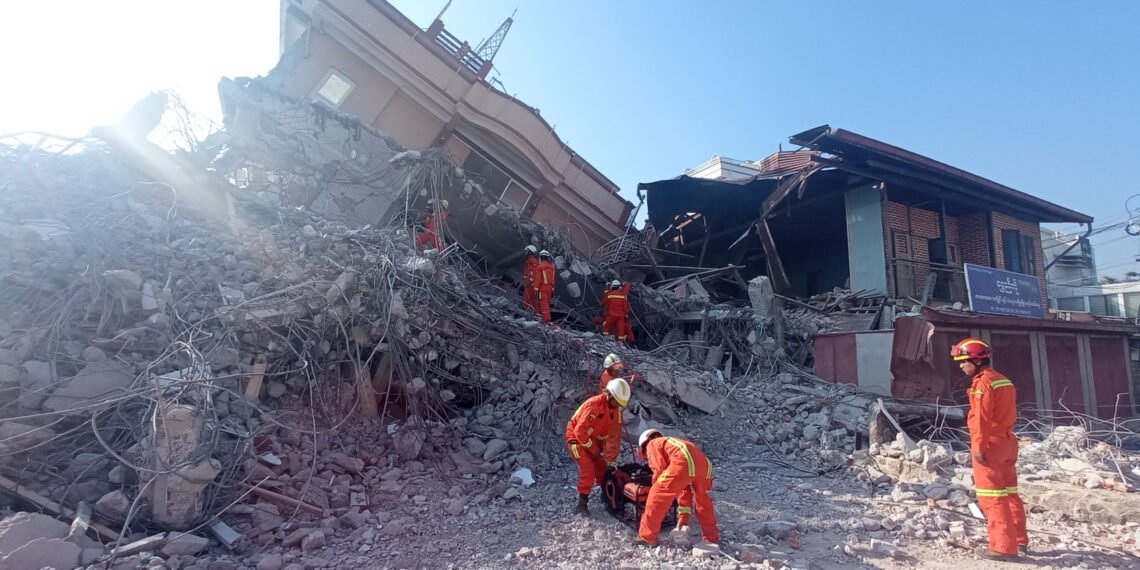

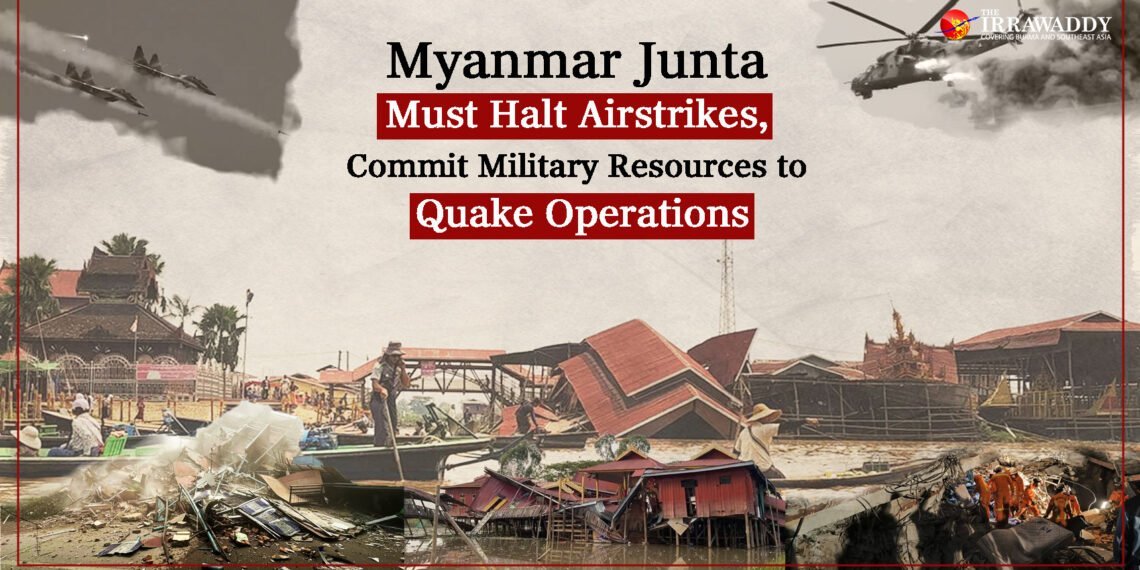

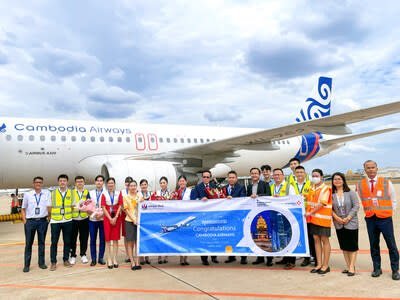

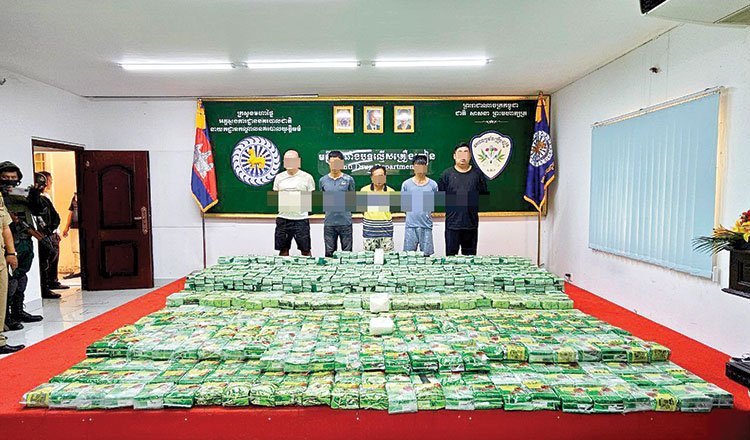

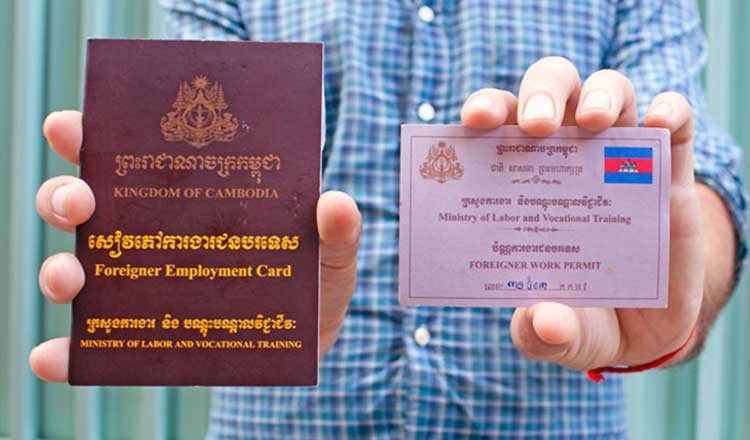

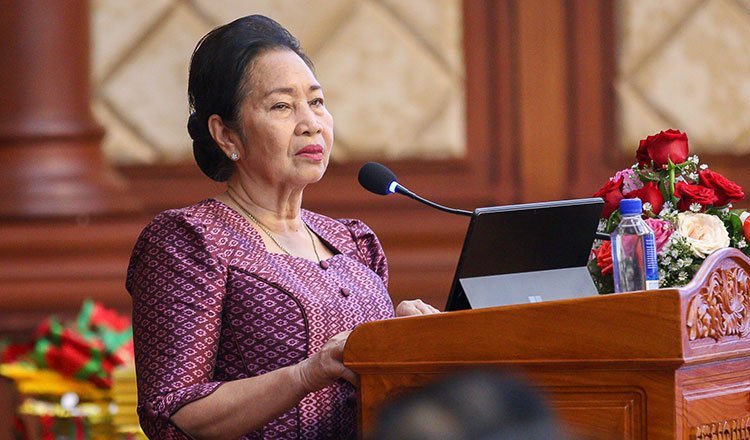

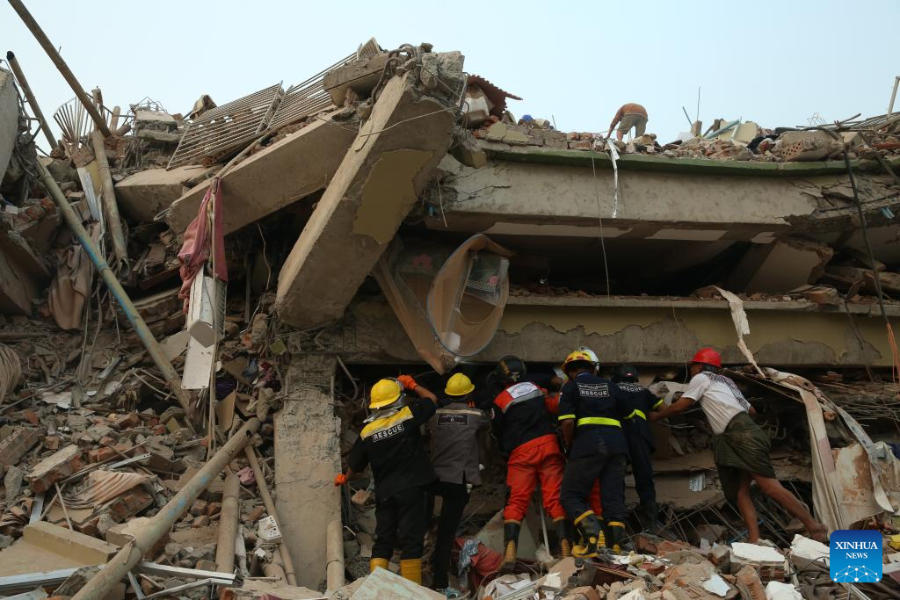



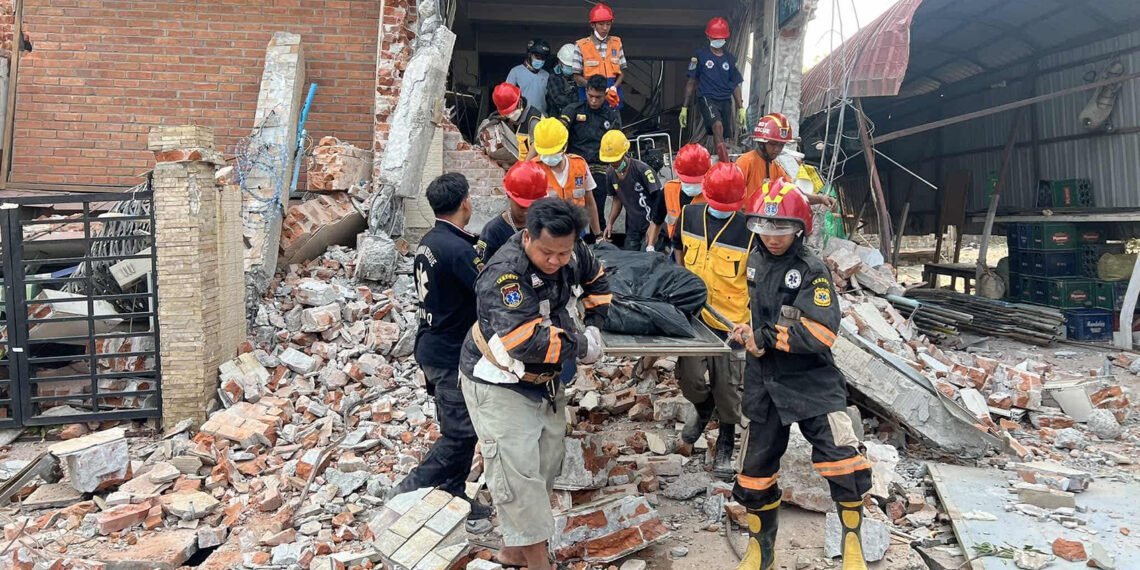

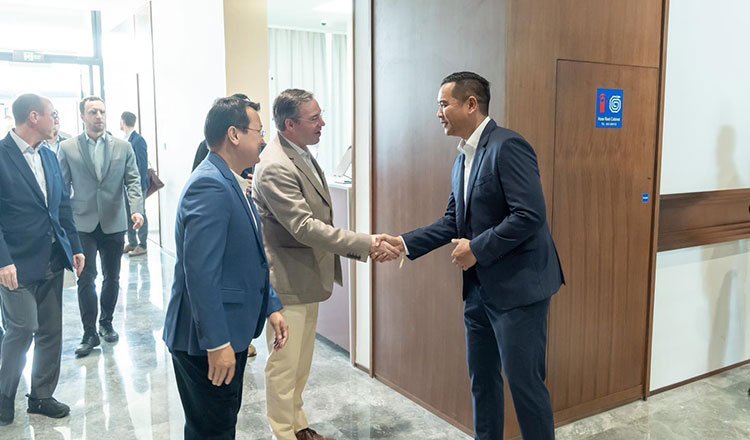

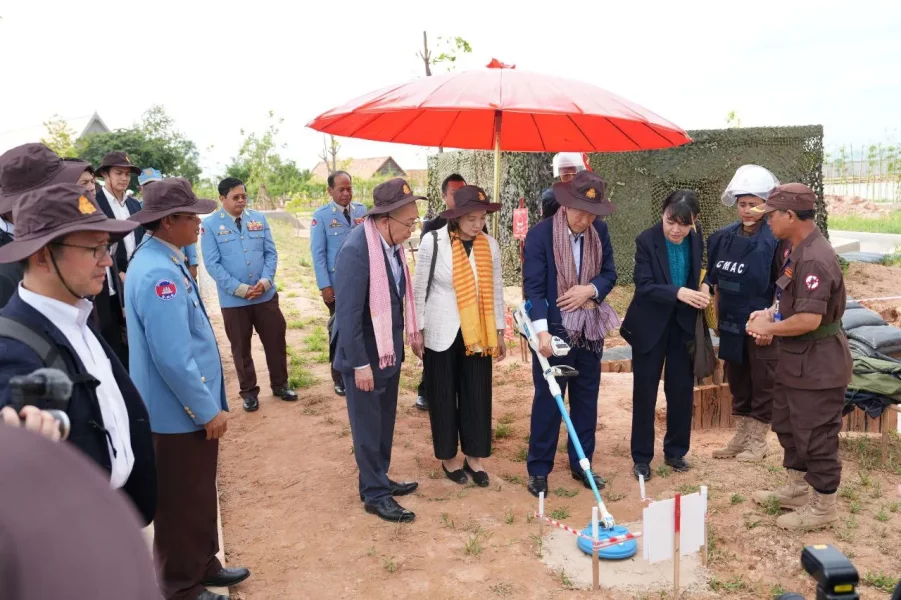

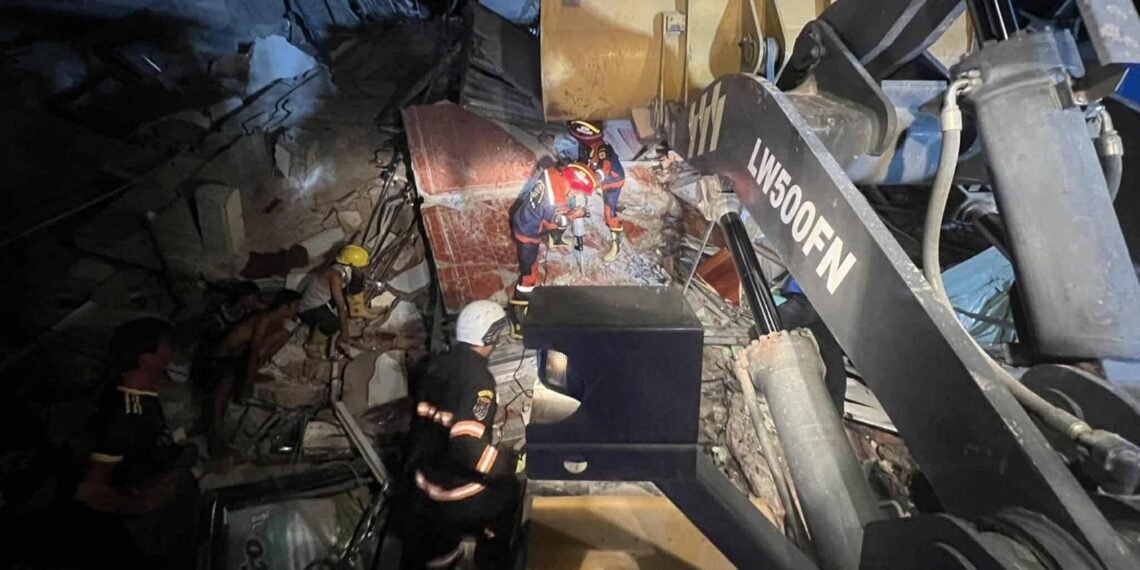


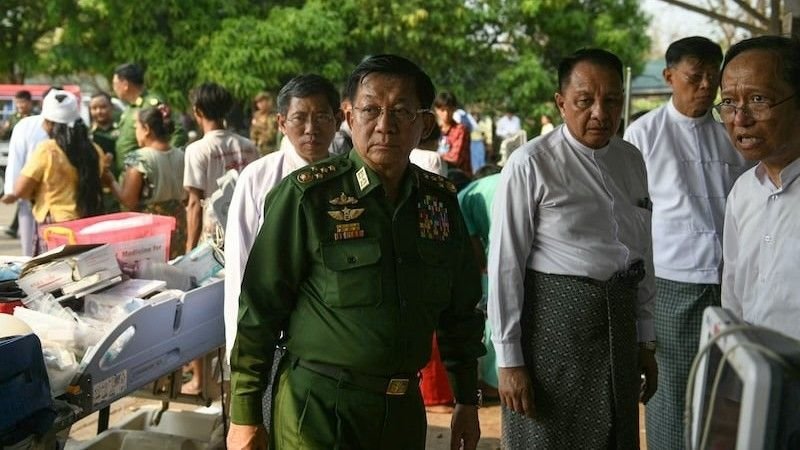

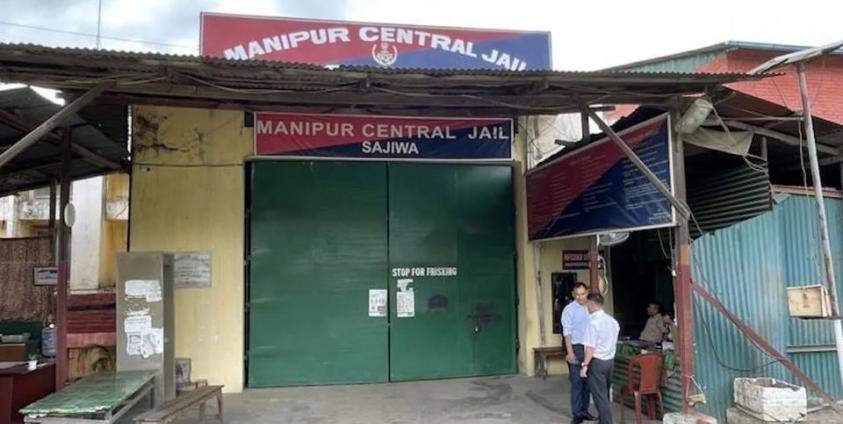

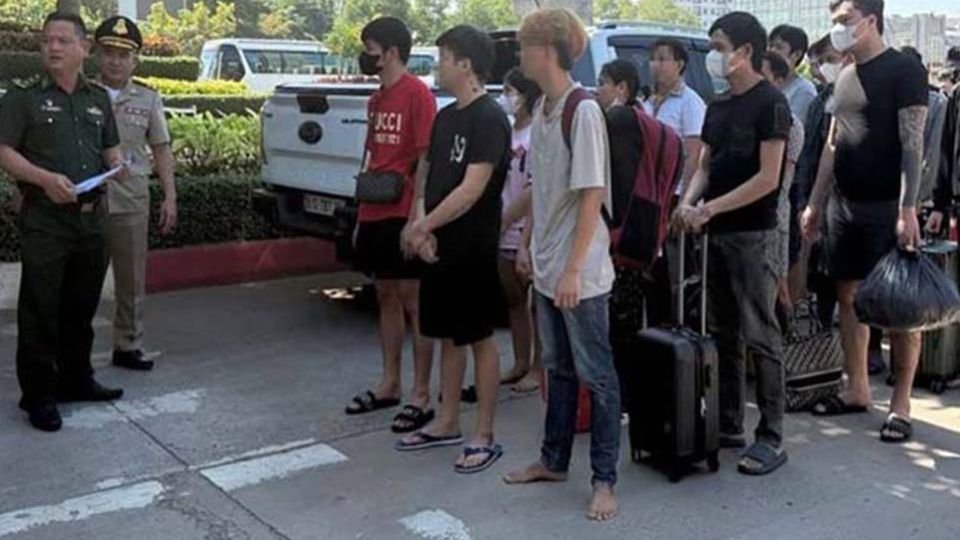

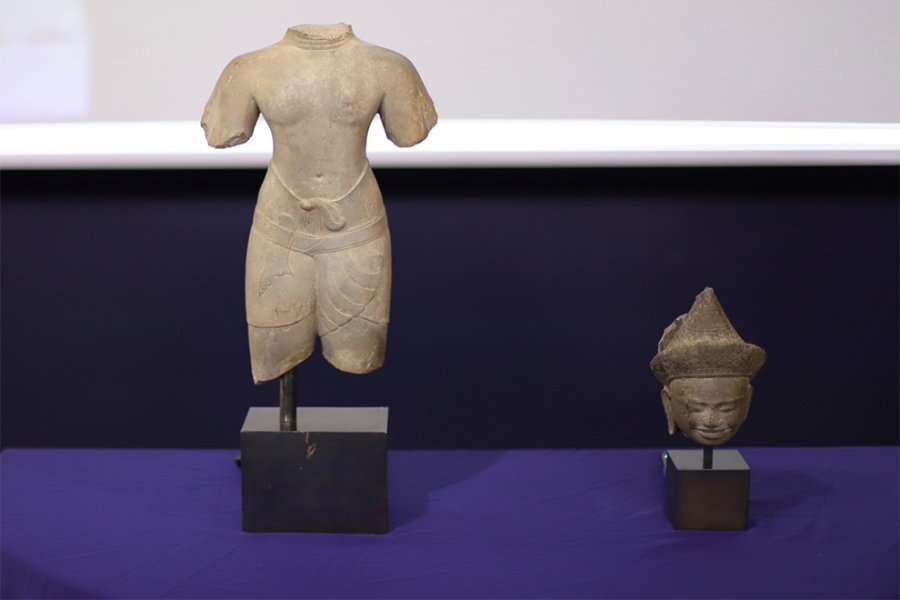

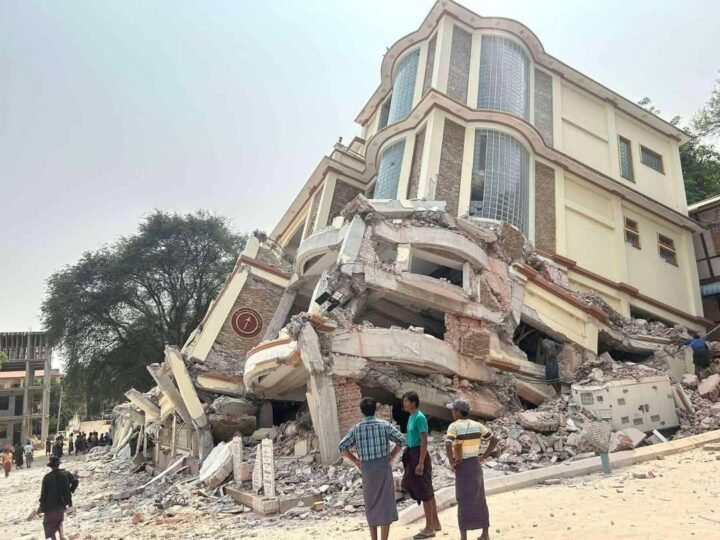


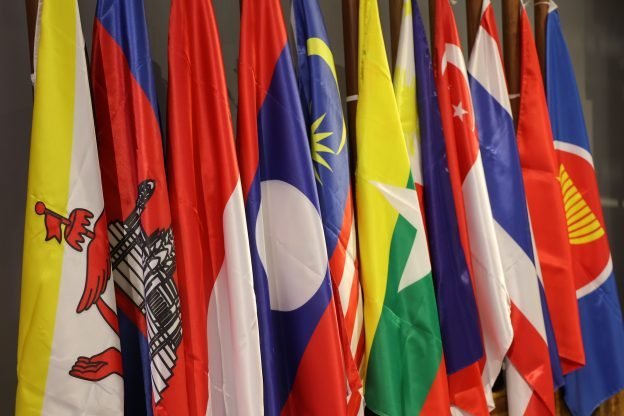

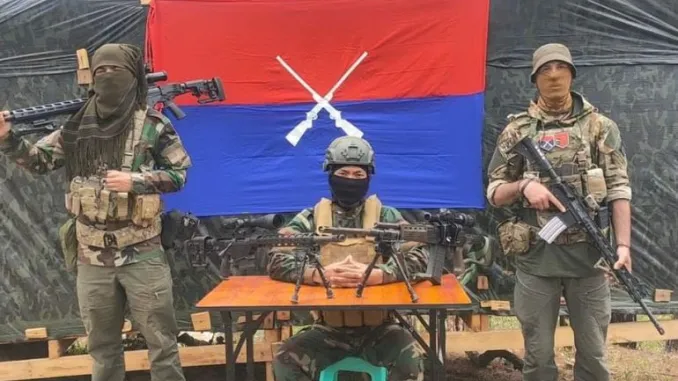

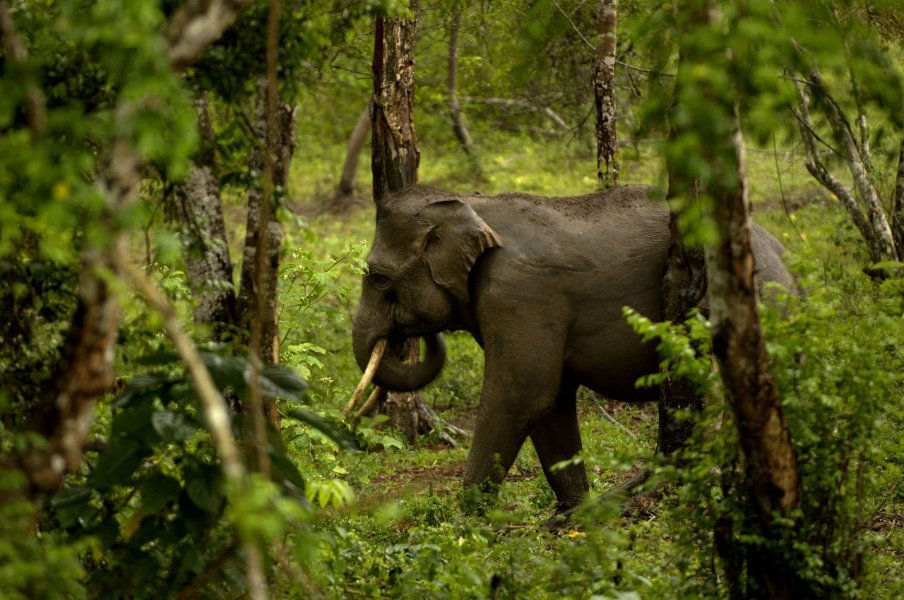

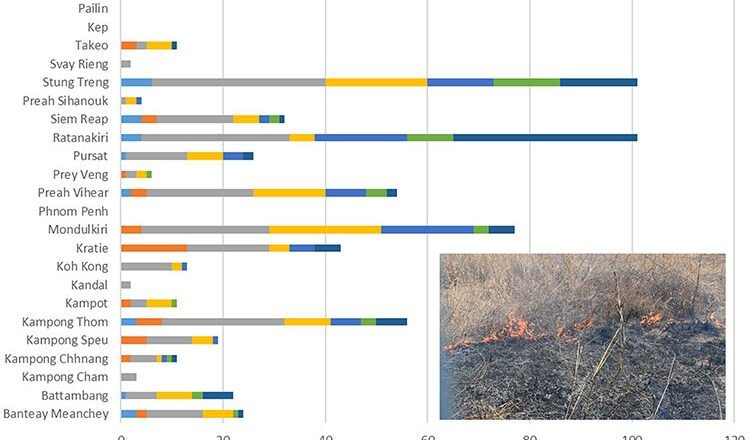

.jpg.fe06e54c66b8ee62f48f0da455e52535.jpg)


